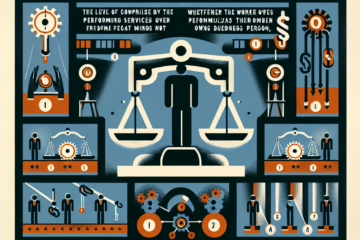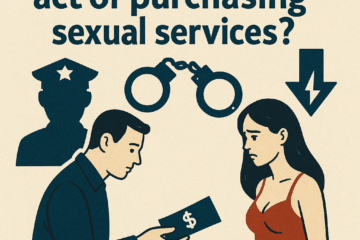Table of contents
The juvenile justice system in British Columbia (BC) is designed to address the unique needs of young offenders and focuses on rehabilitation rather than punishment. This system is structured to provide support and guidance to youths who have committed offenses, helping them reintegrate into society as responsible individuals. This blog post explores the key components of the juvenile justice system in BC, highlighting its processes, principles, and the various programs available to young offenders.
Overview of the Juvenile Justice System in BC
Principles and Goals
The juvenile justice system in BC operates under the principles outlined in the Youth Criminal Justice Act (YCJA). The primary goals include:
- Rehabilitation and Reintegration: Emphasizing the importance of helping young offenders develop the skills and attitudes necessary to become productive members of society.
- Accountability: Ensuring that young offenders are held accountable for their actions in a manner appropriate to their age and level of maturity.
- Protection of the Public: Balancing the needs of the young offenders with the safety and security of the community.
- Proportionality: Ensuring that the severity of the consequences is proportionate to the seriousness of the offense.
Key Components of the System
The juvenile justice system in BC includes several key components designed to address the specific needs of young offenders:
- Police: The first point of contact for young offenders. Police officers have the discretion to warn, caution, or refer young offenders to extrajudicial measures or programs.
- Youth Justice Court: Specialized courts that handle cases involving young offenders. These courts focus on rehabilitation and often use alternative sentencing options.
- Youth Probation Officers: Professionals who supervise young offenders in the community, helping them comply with court orders and access necessary services.
- Custody Facilities: Secure and open custody facilities provide structured environments for young offenders who require more intensive intervention.
The Youth Criminal Justice Act (YCJA)
The YCJA is the federal legislation that governs how young offenders are treated in Canada. Key features of the YCJA include:
- Extrajudicial Measures: Alternatives to formal court proceedings, such as warnings, referrals to community programs, and restorative justice processes.
- Sentencing Principles: Sentences must be proportionate to the seriousness of the offense and consider the young person’s circumstances and potential for rehabilitation.
- Custody and Supervision: Custody is used as a last resort, and young offenders in custody receive education, counseling, and other support services.
Programs and Services for Young Offenders
Extrajudicial Measures and Sanctions
Extrajudicial measures are alternatives to formal court proceedings that aim to address the underlying causes of criminal behavior. These measures can include:
- Warnings and Cautions: Formal warnings issued by police or other authorities.
- Referrals to Community Programs: Programs that provide counseling, education, and other support services.
- Restorative Justice Programs: Programs that involve the victim, offender, and community in resolving the harm caused by the offense.
Youth Probation Services
Youth probation officers play a crucial role in the rehabilitation process. They work with young offenders to develop individualized supervision plans that address their specific needs and risks. Probation officers also coordinate access to various services, including:
- Counseling and Mental Health Services: Support for young offenders dealing with mental health issues, substance abuse, and other challenges.
- Educational and Vocational Training: Programs that help young offenders continue their education and develop job skills.
- Community Service: Opportunities for young offenders to give back to the community as part of their rehabilitation.
Custody and Supervision
For young offenders who require more intensive intervention, BC offers both open and secure custody facilities. These facilities provide structured environments where young offenders can receive the support they need to make positive changes in their lives. Services provided in custody facilities include:
- Education: Access to schooling and vocational training.
- Counseling: Individual and group counseling sessions to address behavioral issues and promote personal development.
- Recreational Activities: Programs that encourage physical activity and positive social interactions.
Success Stories and Impact
The juvenile justice system in BC has seen numerous success stories, with many young offenders successfully rehabilitated and reintegrated into society. Programs that focus on education, counseling, and community involvement have shown positive outcomes, reducing recidivism rates and helping young offenders build better futures.
In BC, the juvenile justice system applies to individuals aged 12 to 17 at the time of the offense.
Extrajudicial measures are alternatives to formal court proceedings designed to address the underlying causes of criminal behavior without going through the traditional justice system.
Under certain circumstances, youth aged 14 and older who commit serious offenses may be sentenced as adults. However, this is rare and typically reserved for the most severe cases.
Parents are encouraged to be involved in their child’s rehabilitation process, attending meetings, supporting compliance with court orders, and participating in counseling and educational programs.
The juvenile justice system balances the needs of young offenders with public safety by implementing appropriate measures, such as supervision and structured programs, to reduce the risk of reoffending.
Youth records are typically sealed after a certain period, provided the young offender does not commit further offenses. The retention period varies based on the severity of the offense.
Victims can participate in restorative justice programs and receive support services to help them cope with the impact of the offense.
The system provides access to mental health services, including counseling and psychiatric care, to address any underlying mental health issues that may contribute to criminal behavior.
Conclusion
The juvenile justice system in British Columbia is designed to provide a supportive and rehabilitative environment for young offenders, focusing on their development and reintegration into society. By emphasizing rehabilitation, accountability, and proportionality, the system aims to address the unique needs of young offenders while protecting public safety. With various programs and services in place, the juvenile justice system in BC offers a comprehensive approach to helping young offenders build better future.
Pax Law can help you!
Contact Samin Mortazavi, a lawyer at Pax Law Corporation, where expertise and dedication converge to resolve your criminal law needs. As a knowledgeable lawyer with a profound understanding of Canadian criminal law, Samin Mortazavi offers strategic guidance and advocacy for navigating complex criminal cases. Whether it’s defending against charges, handling criminal appeals, or advising on legal rights, Pax Law Corporation is your trusted partner in managing your criminal law matters. Protect your future by reaching out to Samin Mortazavi today
Our lawyers and consultants are willing, ready, and able to assist you. Please visit our appointment booking page to make an appointment with one of our lawyers or consultants; alternatively, you can call our offices at +1-604-767-9529.



0 Comments